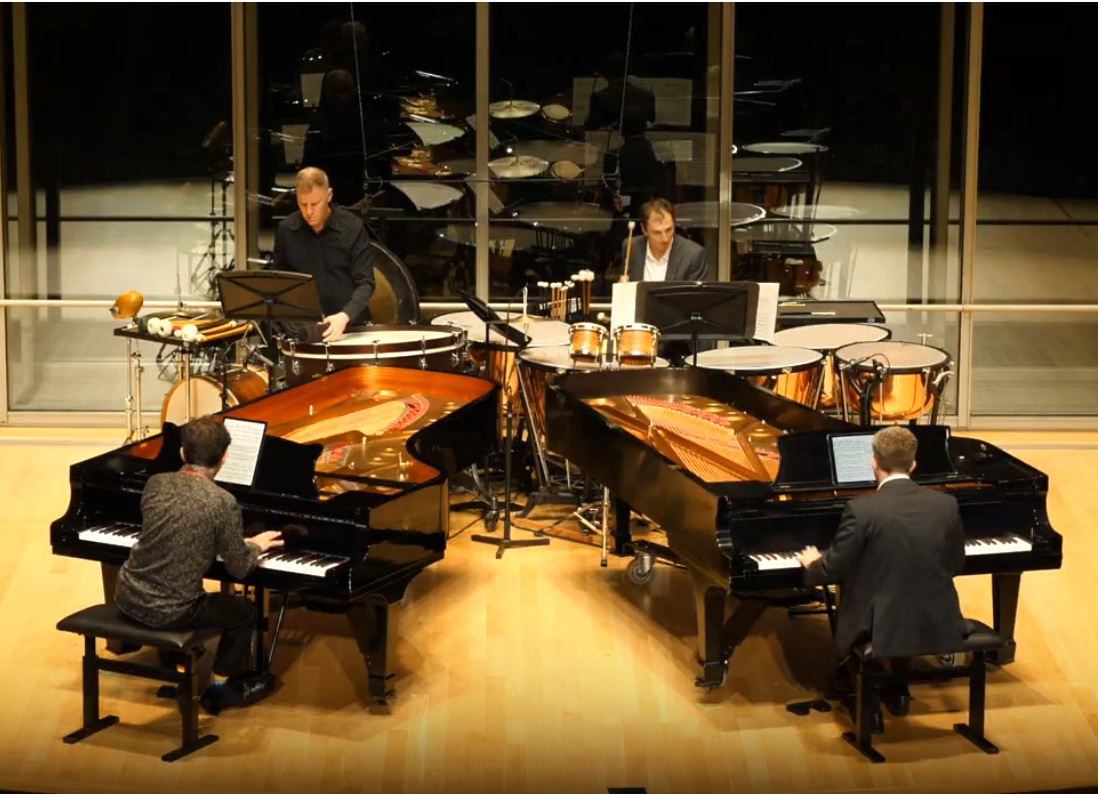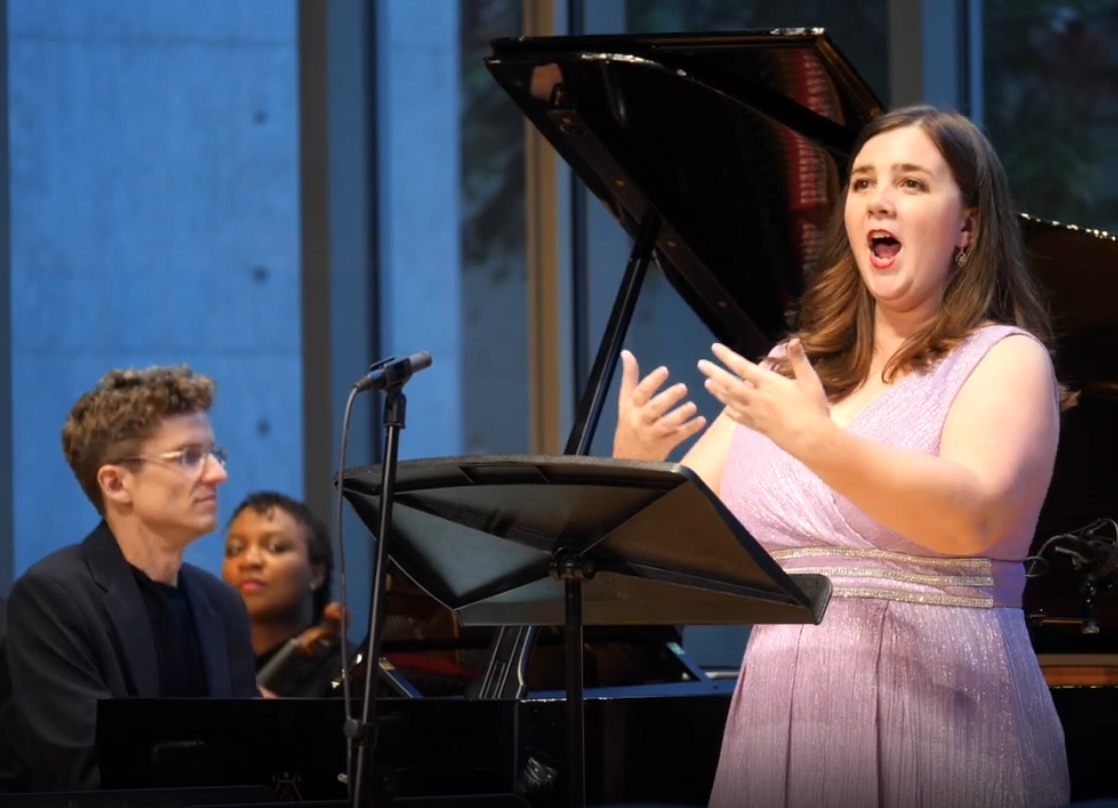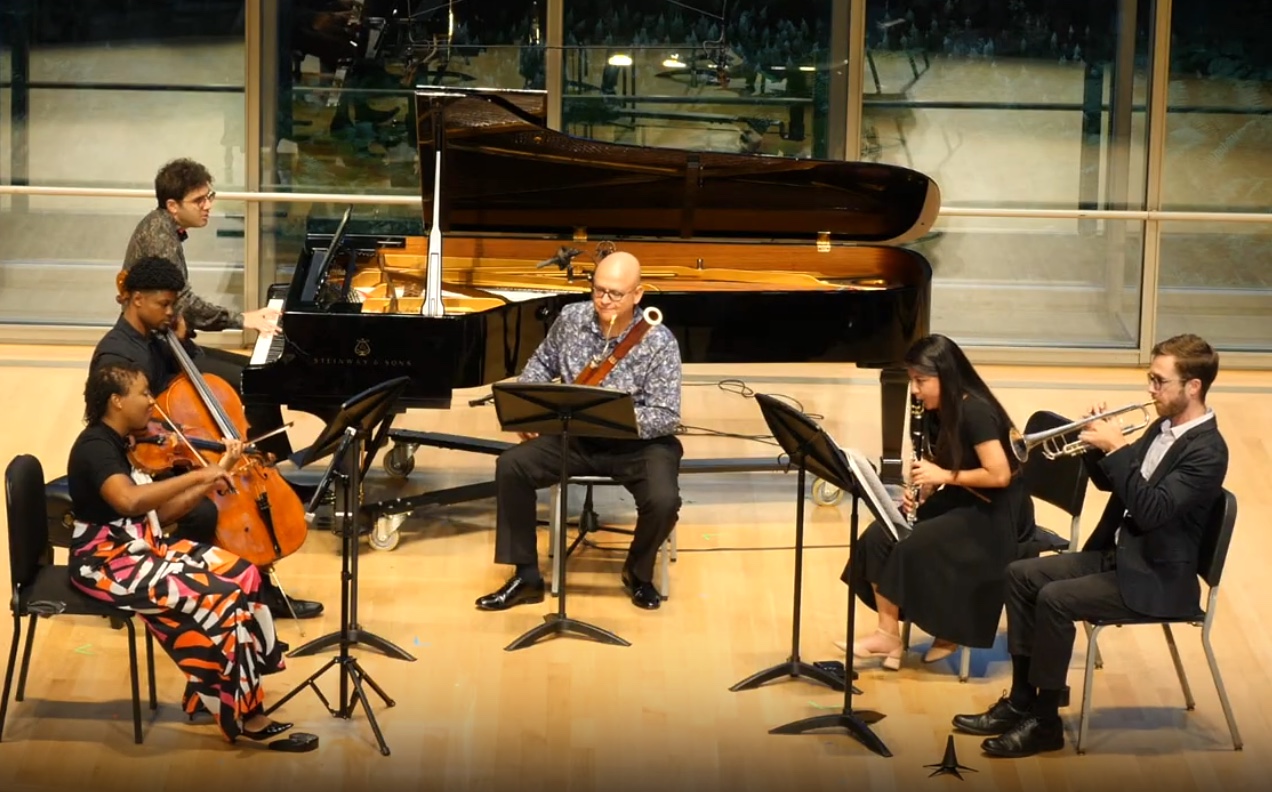by Kevin McLaughlin

Titled “Rite of Spring” — for Stravinsky’s ballet and the stem-winder of an arrangement for two pianists and two percussionists that ended the concert — tonight’s program was distinctly light in mood, including silly songs by Bernstein and P.D.Q. Bach, a couple of tearjerkers by Dvořák and Kurt Weill, and dance music by HK Gruber and Martinů.
When co-artistic director Diana Cohen casually announced that soprano Sarah Shafer would be filling in last-minute for Susanna Phillips, the audience may have started a bit — but her nonchalance foreshadowed the no-cause-for-worry performances to come. Indeed, Shafer, a recent Curtis graduate with growing opera bona fides, calmed any audience disquiet with her gracious announcing and secure, brightly lit singing.

Then came the sudden emotional wrench of Kurt Weill’s Je ne t’aime pas (“I Don’t Love You”), which the composer may have written for his then ex-lover, the cabaret singer Lotte Lenya. Shafer sang it with more innocence than smoky pathos — chalk this up to the serene quality of her voice, a beautiful instrument in any context.
Sitting down to play HK Gruber’s 3 MOB Pieces for seven interchangeable instruments and percussion, the musicians fooled us with their initially serious faces — but the joy of playing soon overtook them. This was a concertato affair with every musician contributing to the artful harmonies, infectious rhythms, and counterpoint in a toe-tapping, three-movement set of bossa nova, blues, and café music.
Shafer came back to sing two more songs: one serious and one slaphappy. The autumnal quality of Dvořák’s “Songs My Mother Told Me” was made slightly less so by the English translation employed (Czech just sounds more gloomy), but Shafer’s voice and bearing still conjured old-world earnestness and charm.
For P.D.Q. Bach’s “Little Bunny Hop Hop Hop,” Shafer was required to periodically hit herself on the head with a set of cardboard tubes, cut to various lengths for pitch, while singing silly words. Even her misfires (inadvertently picking up the wrong tubes) endeared her to the appreciative audience.

The concert ended with, if not exactly fisticuffs, at least the promise of them. Co-artistic director and pianist Roman Rabinovich described the final work, an arrangement of Igor Stravinsky’s Rite of Spring, as simply, “It’s a riot!” He may have been referring not to violence, but to the joy of playing this still arresting work with his old friend and school chum, pianist Yaron Kohlberg, and percussionists Tom Sherwood and Alexander Cohen.
Where Stravinsky’s original, a vast landscape of instruments and bodies, might easily distract a listener with its sheer variety and number of constituents, here one had the luxury of following the action within a narrower frame, thanks to the performers’ close cohesion, transparency of inner voices, and rhythmic precision — all without a conductor.
The first percussion entrances a few minutes in managed to startle most of the audience, despite instruments and players being in plain view. No doubt the ferocity of their playing in such a small space had something to do with it.
Though there were no ensuing fist fights, there was much standing and cheering after the players seemed to collapse from sheer exhaustion — as Stravinsky’s protagonist had.
Published on ClevelandClassical.com June 27, 2024.
Click here for a printable copy of this article


